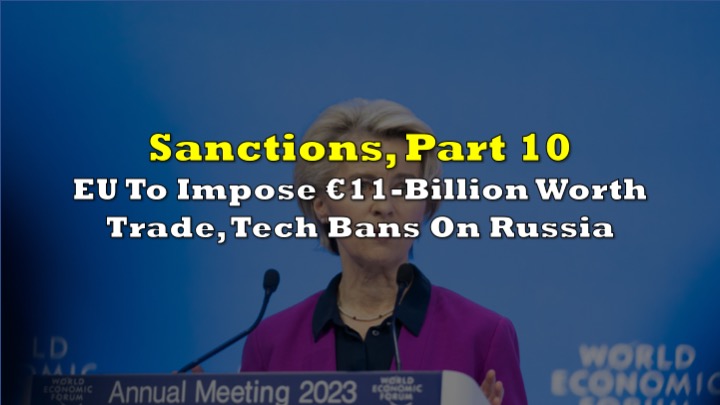Russia’s finance minister just announced a 10% budget cut across the board after the government suffers its biggest revenue collapse in 11 years.
The cut is being made after Moscow sustained a budget hole the size of 1.5 trillion rubles during June-August. According to a source close to the cabinet, so-called “unprotected items” will go “under the knife.”
The Russian government is administering an across-the-board cut of 10% in budgetary expenses. This is in reaction to a larger-than-expected decline of fiscal revenues over the summer (a deficit of close to 1.5 trillion rubles). This is likely only the first step. https://t.co/1A86AutZD2
— András Tóth-Czifra 🇺🇦 (@NoYardstick) September 15, 2022
The budget deficit is mainly driven by the decline in oil and gas revenues, which fell 29% in July and another 13% in August. The gains made by the country when oil prices were sky-high at the onset of the war only compensated for the deficit, as total expenses increased by 8.4% year-on-year in August alone.
The 1.6-trillion ruble surplus at the beginning of June ended at just 131 billion rubles by the end of August.
Aside from the budget cut, Moscow seems to be reprioritizing its spending. According to the source, the government will increase its finances to boost its army while it will keep the 2-trillion ruble state defense order program at the same level.
However, pension payments, public sector salaries, and the healthcare system are reportedly not part of the cuts.
The decline in energy revenues–Russia’s biggest income source–is seemingly an effect of the sanctions imposed by the West compounded by the inability of its Asian clients to fill the gap. As a Yale Chief Executive Leadership Institute paper puts it, the sanctions are working on deterring Russia’s war chest but the country is just cherrypicking the data it publishes to project resilience.
Adding to this standoff is US President Joe Biden’s push to impose a price cap on Russian oil and the G7’s move to consider a price cap on Russian natural gas imports. Russian President Vladimir Putin is seemingly retaliating as he threatens to cut oil supply following the Nord Stream 1 pipeline being taken offline indefinitely.
A clear depiction of the sanction effect is on the Russian rail sector, which is expected to head towards recession as repairs and parts that are outsourced from the European suppliers can’t be procured.
The private sector is also feeling the effects of the sanctions, pushing some of the Russian elite to offer Ukraine money in exchange for getting the sanctions lifted.
At the end, Moscow might be weathering the sanctions for nothing. Ukraine seems to be advancing its military offense as forces started to move on Russian-occupied regions, including the city of Izyum that has warehouses filled with Russian guns and ammunition. The latest development in the war comes as a big threat to Russia’s geopolitical goal in invading Ukraine, for which it is receiving sanctions from the global community in the first place.
Information for this briefing was found via The Moscow Times and the sources mentioned. The author has no securities or affiliations related to this organization. Not a recommendation to buy or sell. Always do additional research and consult a professional before purchasing a security. The author holds no licenses.









